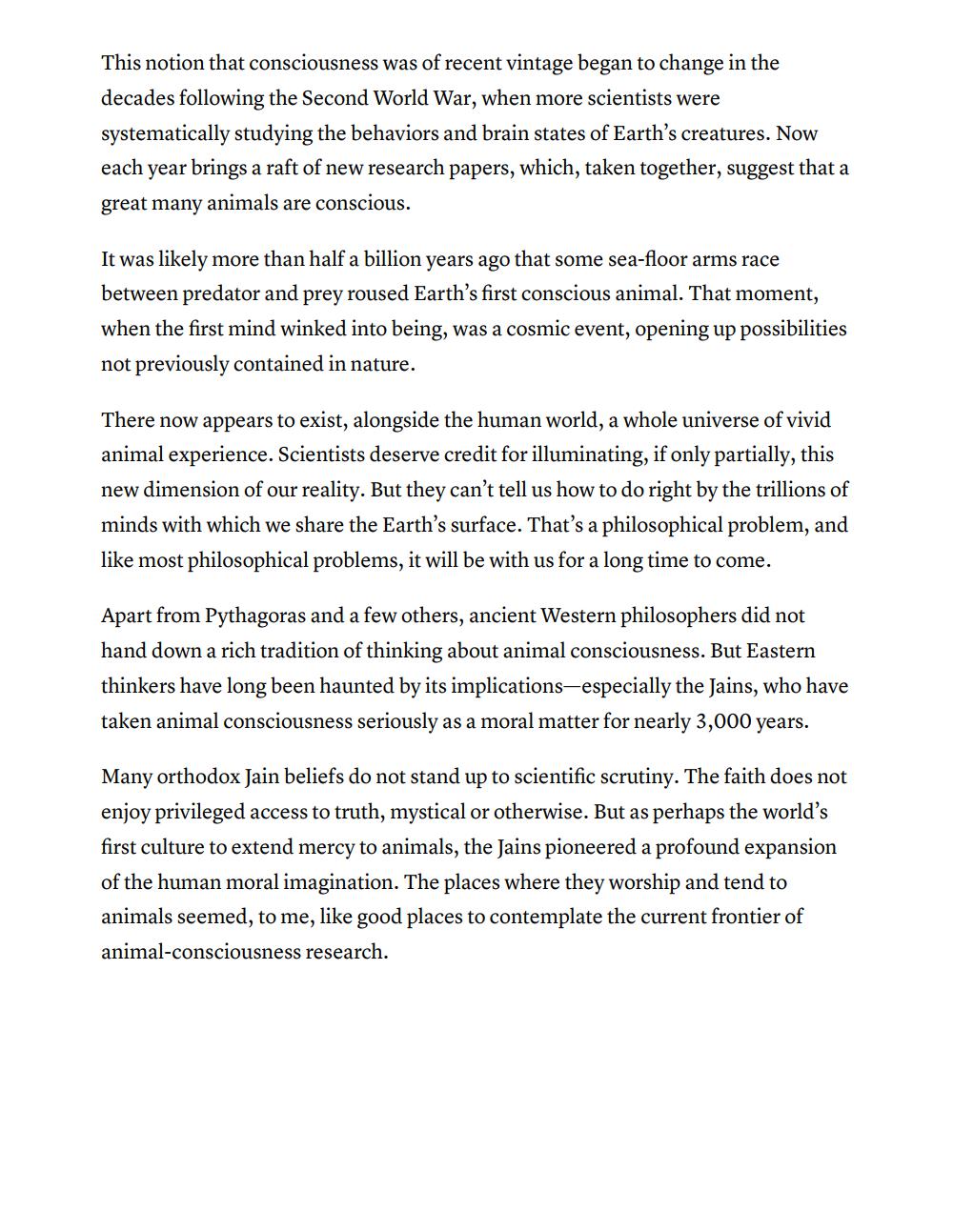Book Title: Journey Into The Animal Mind Author(s): Ross Andersen Publisher: Ross Andersen View full book textPage 6
________________ This notion that consciousness was of recent vintage began to change in the decades following the Second World War, when more scientists were systematically studying the behaviors and brain states of Earth's creatures. Now each year brings a raft of new research papers, which, taken together, suggest that a great many animals are conscious. It was likely more than half a billion years ago that some sea-floor arms race between predator and prey roused Earth's first conscious animal. That moment, when the first mind winked into being, was a cosmic event, opening up possibilities not previously contained in nature. There now appears to exist, alongside the human world, a whole universe of vivid animal experience. Scientists deserve credit for illuminating, if only partially, this new dimension of our reality. But they can't tell us how to do right by the trillions of minds with which we share the Earth's surface. That's a philosophical problem, and like most philosophical problems, it will be with us for a long time to come. Apart from Pythagoras and a few others, ancient Western philosophers did not hand down a rich tradition of thinking about animal consciousness. But Eastern thinkers have long been haunted by its implications—especially the Jains, who have taken animal consciousness seriously as a moral matter for nearly 3,000 years. Many orthodox Jain beliefs do not stand up to scientific scrutiny. The faith does not enjoy privileged access to truth, mystical or otherwise. But as perhaps the world's first culture to extend mercy to animals, the Jains pioneered a profound expansion of the human moral imagination. The places where they worship and tend to animals seemed, to me, like good places to contemplate the current frontier of animal-consciousness research.Page Navigation
1 ... 4 5 6 7 8 9 10 11 12 13 14 15 16 17 18 19 20 21 22 23 24
